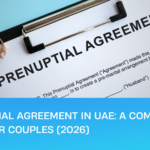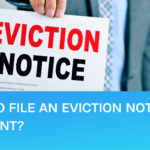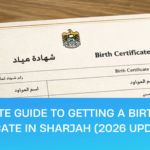Guide to Power of Attorney for Property Transactions in Dubai

In Dubai, when concluding real estate transactions, the Dubai Land Department (DLD) prefers and encourages the parties to be personally involved and present in executing the documents to finalize the real estate transaction, especially when it comes to buying and selling of real estate. The reason is apparently to avoid any fraudulent transactions. However, many Dubai property investors do not reside in the Emirate and even if they do, they may have time constraints for attending the formalities. This is where a Special Power of Attorney for Property in Dubai comes into play. A Power of Attorney for the property is a written instrument whereby one party, the grantor or principal, gives authority to another party, the agent or attorney-in-fact, to act on their behalf in the proposed real estate transaction.
In general, for a POA to be valid in the UAE, it has to be prepared either in Arabic, or in English with legal translation into Arabic and must be signed at a Notary Public in the UAE. If a person who wants to issue a POA is not in UAE or has no time to visit the notary, they may go for online notarization service of UAE notaries.
If a POA is executed in another country but shall be used in the UAE, it has to be first legalized in local authorities in the country of origin, UAE Embassy or Consulate in the country of origin and UAE Ministry of Foreign Affairs. If there is no UAE Embassy or Consulate in that country, then it can be attested by the UAE Embassy in the closest country, or alternatively the Embassy or Consulate of the country in UAE. Depending on where the POA shall be used, it may require official legal translation into Arabic and attestation by the Ministry of Justice.
Online Notarization
The online notarization removes the hassle of legalization and saves a lot of time. For individuals who are currently located outside the UAE, the online notarization can be the ideal option which eliminates the need to travel and saves a lot of time.
The steps of issuing a Power of Attorney through online notary in Dubai involves following steps:
- POA Preparation in Arabic and English. Prior to the online notarization, the Power of Attorney has to be prepared in Arabic (and in English – optional) in accordance with Dubai laws. Real estate transactions in Dubai require a Special Power of Attorney with clear powers, which should not be ambiguous. For property sale or gift or transfer, the POA has to specify the details of the property based on title deeds or Oqood.
- Collection of Documentation. Depending on the Power of Attorney, the notaries require various documents including IDs and ownership documents in relation to properties.
- Securing an Appointment with the Notary. Notarizing the document through online notarization requires attending a video call with original passport or Emirates ID by the person who will issue the Power of Attorney.
- Authentication through OTP. As part of the authentication process the person issuing a POA receives one time password to sign the POA, which serves as electronic verification. Once the documents and identities are verified, the notary public officials notarize the Power of Attorney and issue digital POA, which can be used directly in UAE without any additional attestation.
The whole process of online notarization of a Special Power of Attorney for Property in Dubai can take 1-3 business days on average.
Our company provides assistance with drafting a POA that is acceptable in UAE, reviewing and verifying the required documentation, securing an appointment with the notary, and with authentication process. To know more about online notarization service, please click here.
Standard Legalization
In brief the legalization process involves following steps:
- POA Preparation in Arabic and English. Prior to the online notarization, the Power of Attorney has to be prepared in Arabic (and in English – optional) in accordance with Dubai laws. Real estate transactions in Dubai require a Special Power of Attorney with clear powers, which should not be ambiguous. For property sale or gift or transfer, the POA has to specify the details of the property based on title deeds or Oqood.
- Notarization in home country: Most official documents including Power of Attorney need to be certified by a Notary Public before taking further steps.
- Attestation by the Ministry of Foreign Affairs or equivalent authority: Once the document is notarized, it has to be authenticated by the Ministry of Foreign Affairs of home country. At this stage the Ministry stamps the document to confirm its legitimacy.
- UAE Embassy / Consulate Attestation: The next step is to have the document attested by the UAE Embassy or Consulate in the country of origin.
- UAE MoFA Attestation in UAE: After the UAE Embassy / Consulate attestation, the document has to be sent to UAE and attested by the UAE Ministry of Foreign Affairs.
- Translation from English into Arabic: In some cases, your document may need to be translated into Arabic, especially, if the POA will be used in mainland government authorities.
- UAE Ministry of Justice (MOJ) Attestation (if applicable): If your POA is going to be used in the court, Arabic translation and attestation by the Ministry of Justice would be required too.
The whole process of standard legalization can take 15-20 days on average.
Therefore, instead of signing the POA in your home country and having it legalized through the above steps, you may prefer to sign a Power of Attorney online directly with the notary public in UAE. This will save you significant time and costs.
Dubai DLD Rules in Relation to Power of Attorney for Property Transactions:
For selling real estate, a Special Power of Attorney for Property must specify the property being sold and the principal must provide before the Notary Public the documents proving his ownership rights such as a Title Deed or Initial Contract of Sale for off-plan properties (also known as Oqood).
Additionally, the DLD does not allow attorneys to accept funds in their personal name while selling a real estate, unless the POA expressly allows this. This may create difficulties for owners who do not have bank accounts in the UAE and are unable to receive proceeds of the sale in their own name. In such instances, it is advisable to get the POA drafted by experts with acceptable language and prior approval should be obtained from the Trustee offices of DLD to ensure that the attorney will be permitted to receive the payment in his or her name on the date of transfer.
Here are some points to consider when formulating a Power of Attorney for property transactions in Dubai:
- Consider if you have the capacity to grant a Power of Attorney with respect to the particular property and whether such property can be lawfully dealt in;
- Who will be your agent(s), what powers you will give to them, and are they trustworthy;
- Will you appoint only one agent or more, and will they work singly or jointly;
- Speak with your agent beforehand if he wishes to accept the responsibility under the Power of Attorney and if he can fulfil the obligations;
- Consider whether the attorney will be required to receive money in its name;
- Make sure that your agent is familiar with local rules and customs.
We always recommend taking appropriate advice prior to granting or accepting a Power of Attorney for real estate transactions; especially when it relates to a valuable real estate, to ensure the validity of the POA and to protect your rights and interests.
Disclaimer: The content on this page is for general information purposes only and does not constitute as legal advice nor should it be used as a basis for any specific action or decision. Nothing on this page or website is to be considered as rendering of legal advice or legal services for any specific matter. Users of this website are advised to seek specific legal advice by contacting a lawyer regarding any specific legal issues.





